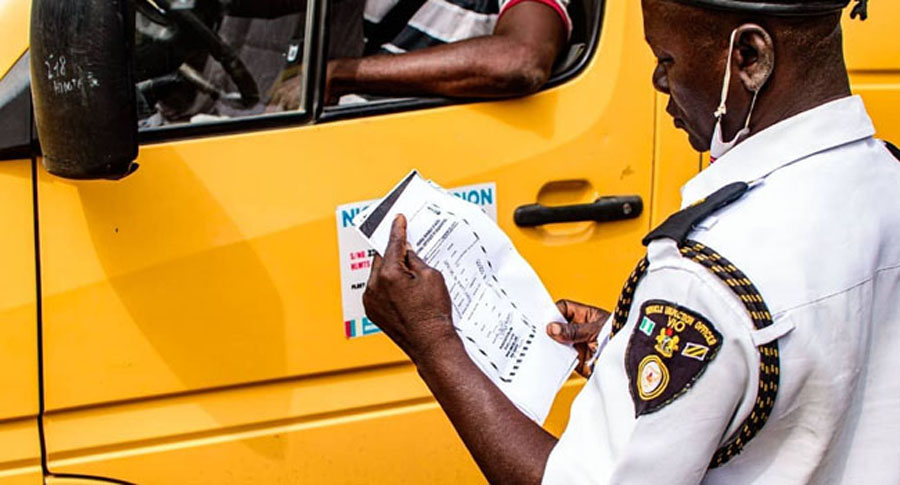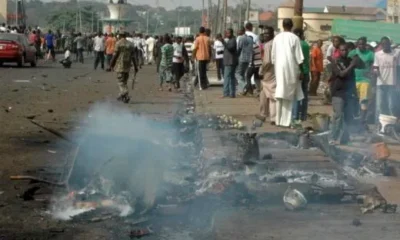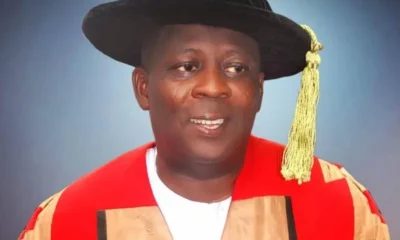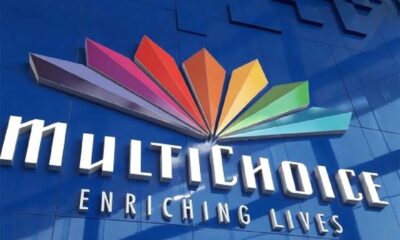Business
CBN says no cause for alarm over tariff war, recapitalisation

CBN says no cause for alarm over tariff war, recapitalisation
As the race for commercial banks’ recapitalisation peaks and the global commerce landscape quakes in the face of the raging US-China tariff war, the Central Bank of Nigeria (CBN) has assured Nigerians not to panic as the local financial ecosystem remains stable with the banks operating within set prudential thresholds.
Director, Banking Supervision Department of the apex bank, Dr Olubukola Akinwumi, stated this in Abuja, yesterday, at the 36th seminar of the Finance Correspondents and Business Editors.
According to him, all the guidelines and prudential benchmarks have been complied with by the banks including non-performing loans, thus making the banking sector healthy.
He promised that calculated steps would be taken to keep the economy on a steady growth trajectory, especially to realise the $1 trillion GDP economy by 2030.
He said: “The banks are in good health. They are working within set templates.”
Earlier in her remarks, the Deputy Governor, Corporate Services of the CBN, Ms Emem Usoro, represented by the acting Director, Corporate Communications, Mrs Hakama Sidi-Ali assured that the apex bank will continue to provide a strong platform to interact with the media.
READ ALSO:
- Abuja-Kaduna expressway re-awarded for ₦777bn, to be delivered 2026
- Some social media users in Nigeria have mental challenges — Bwala
- 49 killed in fresh Plateau attacks
In his presentation, the Group Managing Director of United Bank of Africa (UBA), Oliver Alawuba, said a double digit economic growth of 10 per cent was achievable, just as he listed various challenges to attaining the $1 trillion GDP economy by 2030.
He said: “10 per cent growth is achievable if we set out to do it. We grew to 3.84% in Q4 2024 and that was the highest made since 2021 of 3.46%.
“We have many challenges like high inflation, naira depreciation, regulator challenges, security concerns, infrastructure deficit, financial accessibility and inclusion and more.
“Security is very critical to economic growth. Anything we’re doing revolves around insecurity.
“Infrastructure deficit is a big issue. From poor roads and epileptic power supply, there are many things to address under infrastructure.
“A client in Tanzania says he enjoys 24/7 electricity at five per cent cost. How will a Nigerian entrepreneur compete with him?
“Banks must be positioned to fund infrastructure in Nigeria. Banks also needs to be incentivised
“Nigerian banks are capable of managing the reserves of Nigeria. We are already doing this for banks in Africa. We can use Nigerian money to develop Nigeria. Nigerians take this money out and we come back to borrow it. We should end this,” he said.
Alawuba also called for increased fortification of Nigeria’s digital architecture to close cybersecurity gaps.
“There’s a report that banks lost N52 billion and we need to tackle this and it requires collaboration with various stakeholders to build platforms to protect banks and ultimately safeguard depositors’ funds”, he said.
He also noted that strong oversight was needed for prudent capital deployment into the real economy.
“According to Afrinvest, banks need N4.1 trillion to meet new capital requirements. We should work towards this.
“CBN and banks must jointly sensitise stakeholders on policy rationale and this speaks to strategic communication,” he added.
CBN says no cause for alarm over tariff war, recapitalisation
Business
Dangote urges wealthy Nigerians to invest in industries, not luxury cars, private jets

Dangote urges wealthy Nigerians to invest in industries, not luxury cars, private jets
Africa’s richest man, Aliko Dangote, has called on wealthy Nigerians to redirect funds currently spent on luxury cars and private jets into industrial investments that can generate jobs and foster sustainable economic growth.
In a widely shared interview, the Dangote Group chairman warned that the country’s elite have increasingly prioritized lavish spending over productive ventures. “If you have money to buy a Rolls-Royce, you should take that money and put up an industry in your locality or anywhere there is need,” Dangote said.
He expressed concern over the number of private jets parked at local airports, arguing that the resources tied up in such assets could instead create employment opportunities.
READ ALSO:
- Mohamed Salah Slams Liverpool Boss Arne Slot, Hints at Anfield Exit Ahead of AFCON Departure
- Indonesia Flood Disaster: Death Toll Exceeds 900 as Search for Hundreds Continues
- Russia Intensifies Airstrikes on Ukraine as Zelensky, Trump Envoys Advance Peace Talks
Dangote highlighted Nigeria’s growing population, with an estimated 7.8 million births annually, stressing that both government and private sector actors must invest in infrastructure, power, and productive businesses.
Acknowledging the country’s high taxes, he maintained that businesses must still meet their obligations. “For a company like ours, the tax we pay is too much, but we don’t mind… What we are asking for is an enabling environment, but we too must do our civic duties,” he said.
He also urged Nigerians to prioritize domestic investment over foreign capital, noting that attracting investment depends on good policy and rule of law. “We should stop calling for foreign investors because there’s no foreign investor anywhere. What attracts investment is good policy and rule of law,” Dangote added.
Dangote urges wealthy Nigerians to invest in industries, not luxury cars, private jets
Business
Imo Economic Summit: Aliko Dangote Vows to Become State’s Largest Investor

Imo Economic Summit: Aliko Dangote Vows to Become State’s Largest Investor
OWERRI — Africa’s richest man, Aliko Dangote, has assured Imo State Governor Hope Uzodimma that the Dangote Group is prepared to become one of the biggest investors in Imo State, reaffirming the conglomerate’s commitment to expanding its footprint in Nigeria.
Speaking on Thursday during the opening session of the Imo Economic Summit 2025, Dangote called on the state government to specify key sectors requiring investment, promising immediate action once directives are given.
Dangote, who described Governor Uzodimma as a long-time friend, commended him for fostering an enabling environment for business and economic growth in the state.
READ ALSO:
- NSCDC rejects VIP protection requests from senators as demand surges after police withdrawal
- Edo Assembly Moves to Arrest Obaseki, Others Over MOWAA, Radisson Hotel Probe
- Three Top Contenders to Replace William Troost-Ekong as Super Eagles Captain
“We will be one of your biggest investors in Imo. So please tell me the area to invest and we will invest,” he said.
The African industrialist also encouraged Nigerian entrepreneurs to focus on developing their home regions, stressing that sustainable economic growth cannot depend on foreign capital alone.
“What attracts foreign investors is a domestic investor. Africa has about 30 percent of the world’s minerals. We are blessed,” he noted.
Dangote further highlighted progress at the Dangote Refinery, announcing that the facility is on track to achieve a 1.4 million barrels-per-day production capacity, making it the largest single-train refinery in the world.
The assurance marks a significant boost for Imo State’s investment outlook as the government continues efforts to strengthen its economy and attract large-scale private sector participation.
Imo Economic Summit: Aliko Dangote Vows to Become State’s Largest Investor
Auto
Court of Appeal Affirms Ruling Barring VIO from Seizing Vehicles or Fining Motorists

Court of Appeal Affirms Ruling Barring VIO from Seizing Vehicles or Fining Motorists
The Court of Appeal, Abuja, on Thursday, upheld a previous Federal High Court judgment prohibiting the Vehicle Inspection Officers (VIO) and the Directorate of Road Traffic Services (DRTS) from confiscating vehicles or imposing fines on motorists without lawful authority.
A three-member panel of appellate justices, led by Justice Oyejoju Oyewumi, dismissed the appeal filed by the VIO, describing it as lacking merit and affirming the October 16, 2024 ruling of the high court.
The original suit, marked FHC/ABJ/CS/1695/2023, was filed by public interest lawyer Abubakar Marshal, who alleged that he was unlawfully stopped and had his vehicle confiscated by VIO officials at Jabi District, Abuja, on December 12, 2023. He contended that the action was a violation of his fundamental rights.
READ ALSO:
- FG secures release of three Nigerians detained in Saudi Arabia
- Groups Reject Senator’s Call for Removal of NSA Nuhu Ribadu
- US authorities arrest Nigerian CEO Cashmir Chinedu Luke for alleged $7m VA fraud
Justice Nkeonye Maha of the Federal High Court had declared that no law empowers the VIO to stop, seize, impound, or fine motorists, and granted a perpetual injunction restraining the agency and its agents from further violating citizens’ freedom of movement, presumption of innocence, and right to own property.
The court held that only a court of competent jurisdiction can impose fines or sanctions on motorists. It further ruled that the actions of the Respondents violated Section 42 of the 1999 Constitution and relevant articles of the African Charter on Human and Peoples’ Rights.
Although the applicant had sought N500 million in damages and a public apology, the court awarded him N2.5 million. Respondents included the Director of the Directorate of Road Traffic Services, the Abuja Area Commander, the team leader, and the Minister of the Federal Capital Territory.
The appellate court’s decision confirms that the VIO and DRTS cannot legally harass motorists, reinforcing citizens’ constitutional rights on the road.
Court of Appeal Affirms Ruling Barring VIO from Seizing Vehicles or Fining Motorists
-

 Sports2 days ago
Sports2 days ago2026 FIFA World Cup Draw: England Draw Croatia as Brazil Face Morocco in Tournament Opener
-

 News2 days ago
News2 days agoAkpabio sues Natasha for ₦200bn over sexual harassment allegations
-

 metro2 days ago
metro2 days agoTinubu Govt Eliminates More Terrorists Than Previous Administrations — Fani-Kayode
-

 metro1 day ago
metro1 day agoNigerian woman sparks outrage for refusing chemotherapy despite ₦30 million donations over religious Beliefs
-

 metro2 days ago
metro2 days agoFour Teenagers Killed in Banki Explosion as Borno Police Probe Deadly IED Blast
-

 Opinion3 days ago
Opinion3 days agoSiyan Oyeweso: Lessons in virtue and vanity
-

 Politics2 days ago
Politics2 days agoOsogbo Youth Group Condemns APC Over Disqualification of Adegoke SAN
-

 Entertainment2 days ago
Entertainment2 days agoDStv warns subscribers of possible loss of CNN, discovery, 10 other channels in 2026













